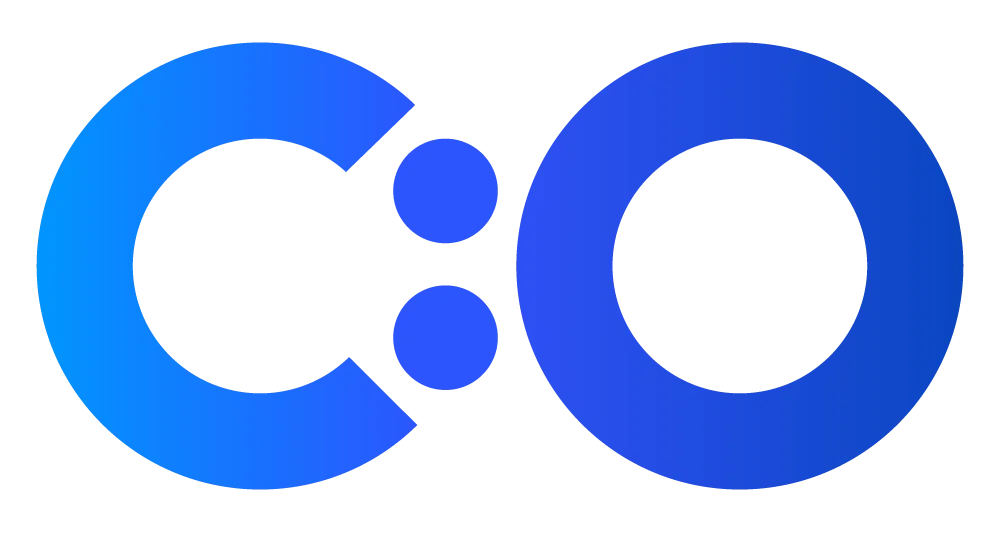- Name: Philipp Wicke
- Number of lab members or colleagues (excluding PI): 1
- Location: University College Dublin
- Graduation Date: 2021
- H index: 3
- Grants: RISE (DAAD) Scholarship, UCD PhD Scholarship.
- Twitter followers: Too many different creative Twitter bots at my disposal to give a concrete answer. Check @the_plot_bot, @metaphormagnet (credit to my PI).
My name is Philipp Wicke and I’m a researcher at the University College Dublin in Ireland. My research is highly interdisciplinary, but overall related to the theme of natural and artificial cognition and creativity. While my PhD is on embodied storytelling using robots and AI systems, my involvement as Head of AI Applications at the NGO AI for People is centered around how we can create responsible, helpful and ethical AI systems. At the same time, I’m collaborating with a variety of researchers on different topics: I’m giving guest lectures on AI and metaphors at the VU Amsterdam, I’m researching on gesture theory, embodied theories of mind and I’m interested in visual creativity for which I am investigating the computational and cognitive aspects of Emoji .
All of those interests emerge from my foundational education during my undergraduate in Cognitive Science at the University Osnabrück. In this program, I learned the fundamentals of Neuroscience, Artificial Intelligence, Linguistic, Psychology and Philosophy of Mind that put me on my current interdisciplinary track. During the undergrad I did an internship at the University College Dublin, which concluded with my Bachelor thesis on “Ideograms as Semantic Primes: Emoji in Computational Linguistic Creativity”. Furthermore, I did an internship at Dauwels lab at the Nanyang Technological University in Singapore, where I investigated the prediction of optimal brain surgery in epileptic patients.
Ultimately, I decided for a PhD that was leaning closer to Artificial Intelligence than Neuroscience. But I’ve always kept Neuroscience close to my interpretations and perspective. Through various interns, which I have managed and guided in our research lab, I got involved in AI for People for which I’ve hosted a coding class and an interactive online workshop.
Soon, I’ll hopefully conclude my PhD with my thesis and defense. Eventually, I’m looking to transform my research into a position that can give me the freedom to work on all the interdisciplinary topics that I’m interested in, whether that will be in academia or not.
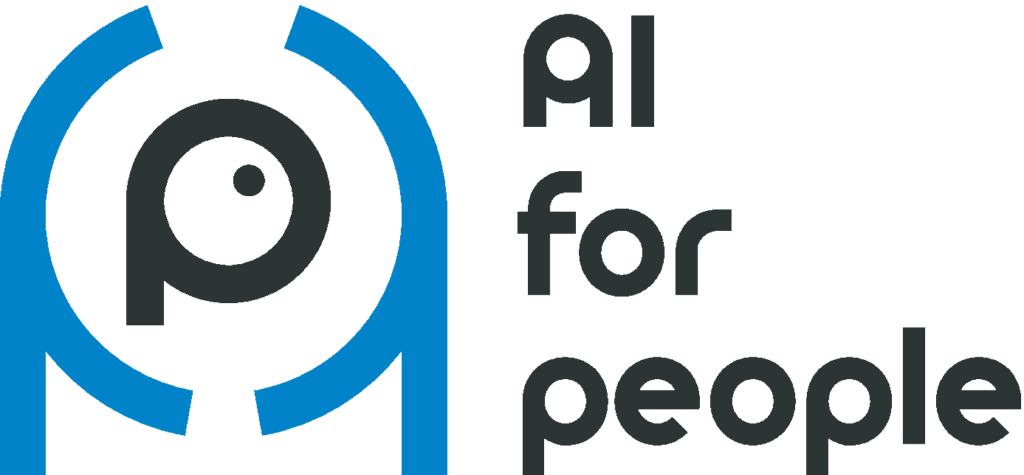
My studies of cognitive science showed me how little we understand about human cognition. And even more so about human creativity. Since I enjoy drawing, painting and writing myself, I’ve observed the huge gap between reasoning, computation and rule-based thinking on the one side and creative, uncontrolled, impulsive thinking on the other side. Using human cognition to understand human cognition might not be sufficient, yet I believe understanding creativity is a key to that. How about computational reasoning? Can we create an algorithmic, statistical model of cognition using a machine? Those questions have led me (and many others) to the inevitable question of whether a machine can think or not. And the key for me here was to realize that it might not need a thinking machine to have a creative machine (or model), but that it first takes a creative machine to have a thinking one.
All those thoughts on thinking, creative machines have led me (and many others) to the argument that a machine, or quite literally, a computer itself is not enough, but that such system has to be embedded, embodied, enacted and extended with(in) its environment (I’ve elaborated this thought here).
Another core concept of human cognition and creativity is language, which I’ve only come to appreciate late after my actual studies of linguistics while reading some opinions from the late Wittgenstein, Chomsky, Turing and my supervisor Tony Veale. Threading the needle through language, creativity, embodiment and artificial intelligence has led me to my PhD topic, which on paper is titled “Embodied Story-Telling: Augmenting Symbolic Narrative Generation with embodied gesture and emotion in a robotic agent”.
Working on the edge of the latest trends in Artificial Intelligence made me highly aware of all its ethical implications. Therefore, I got involved in AI for People to share my knowledge with others and work on more practical applications of artificial intelligence, which are not tightly bound to my PhD project.
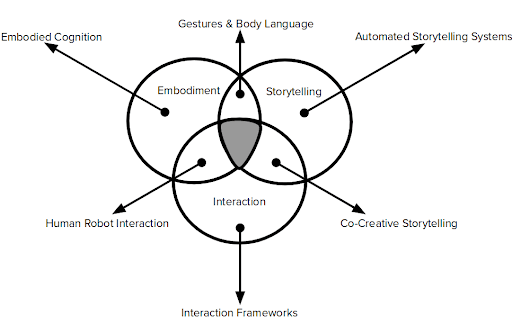
Research project on Embodied Storytelling with Interaction.
Please describe the process of learning, iterating, and creating the project
My research has been highly influenced by the people that I work with, therefore I want to focus on this aspect of the question. Firstly, my supervisor Tony Veale is a great mentor. He is available almost every week, even if just for a coffee and some chit-chat about the latest Netflix series. He’s an academic superhero on the edge between the more technical scientific domain of computer science and the linguistics domain which includes his humor studies, metaphor studies and several other fascinating topics. His tremendous experience in research, teaching and publishing has helped me to find my way in the academic world.
Secondly, I have great collaborations with other researchers that I really enjoy working with. Here, I want to describe the process of creating a project in bullet points:
- Find a collaboration based on the researcher, not on your personal gain
- Openly discuss what you can bring to the project
- Make sure it relates to something you seek to investigate
- Clearly and openly discuss the authorship, roles and responsibilities before doing any work
- There are no hierarchies
- Be as critical of your own work as you are of others
- Consider more time for collaborations than for work by yourself (way more time!)
I am currently collaborating with a Professor at University of Bologna, Marianna Bolognesi. The first project I did with Marianna took almost 1.5 years and resulted in my first journal publication “Emoji-based semantic representations for abstract and concrete concepts”. Despite being a senior researcher with many more years of experience, Marianna always treats me as an equal author, contributor and scientist. She is highly constructive in her feedback and gives me the impression that the project is always our project with a shared goal and responsibility. She really taught me a lot of those bullet-points mentioned above.
The second collaboration I’ve started with João Miguel Cunha from the CDV Lab at the Universidade de Coimbra. Despite the fact that it took us 3 years for our project to bear its fruits in the publication “An Approach for Text-to-Emoji Translation”, I’ve gained a good friend who’s always there to rant about PhD related matters. And once more, I’ve realized that there is much more to gain from collaborations then mere publications. Both Marianna and João found me at workshops and conferences where I presented my work.
Please describe the process of launching the project
The launch of a project can only be described for the project I did for AI for People. Here, we have monthly meetings in which everyone can pitch new ideas for projects. Once, they have been decided to launch, we advertise them here: https://www.aiforpeople.org/projects/
Since launch, what has worked to make your project grow/successful?
One of the best decisions to help my projects grow, was to make them publicly available even if they have not been as important as I considered them to be. Both of the collaborations I currently have, originated from my Bachelor’s project. Sharing my research on ResearchGate helped me to gain a lot of visibility. My thesis has more than 5,000 reads on this platform and being able to host it there allowed it to be cited multiple times, despite the fact that it has not been published by a journal. Same holds for the research archive arxiv.org.
How is everything going nowadays, and what are your plans for the future?
Given the current pandemic situation, I’ve started another side-project. This project kept me busy over a summer mostly spent in lockdown. Marianna Bolognesi and me have investigated the persuasiveness of the war metaphor in the online discourse of the Covid-19 pandemic in a paper titled “Framing COVID-19: How we conceptualize and discuss the pandemic on Twitter“. It has just been published on PLOS ONE and is publicly accessible thanks to funding by the UCD School of Computer Science. But since the start of the project, the discourse has not stopped and we are continuing these investigations.
With respect to my PhD project, I hope to wrap up all scientific insights with a final journal paper contribution before I can start writing my thesis in the next few months.
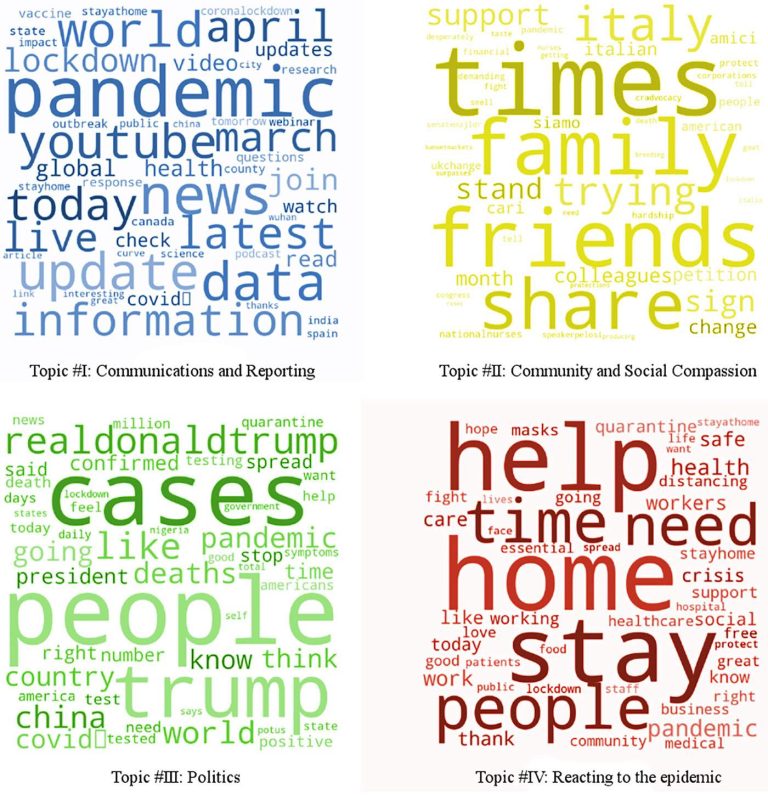
Research on Topic Modeling during the Covid-19 pandemic https://journals.plos.org/plosone/article?id=10.1371/journal.pone.0240010
Through your science, have you learned anything particularly helpful or advantageous?
Since science has always been a constant part of my life, there are simply too many lessons that I have learned. But here are a few:
- In science, ideas can never be completely proven or completely disproven. Instead, science accepts or rejects ideas based on supporting and refuting evidence, and may revise those conclusions if warranted by new evidence or perspectives.
- The impostor syndrome is real.
- Follow every invite to collaborate, but know when to stop.
- There is always someone in the audience who knows more than you, acknowledge their feedback.
- That any scientific contribution is just a tiny drop into the ocean of knowledge.
- Be nice.
We’d love to know more about you, could you please let us know what is your morning routine like?
- News
- Breakfast
- Shower
- Cycling to the office
And how does a typical day look for you?
- Checking emails and directly responding to all of them
- Scheduling the day (what I want to achieve)
- Rescheduling the day (what I actually can achieve)
- Either:
- Coding
- Teaching
- Writing
- Having lunch/coffee with my PI or colleagues
- Checking emails and directly responding to all of them
- Leaving a checklist for the next day
What does your workstation look like?
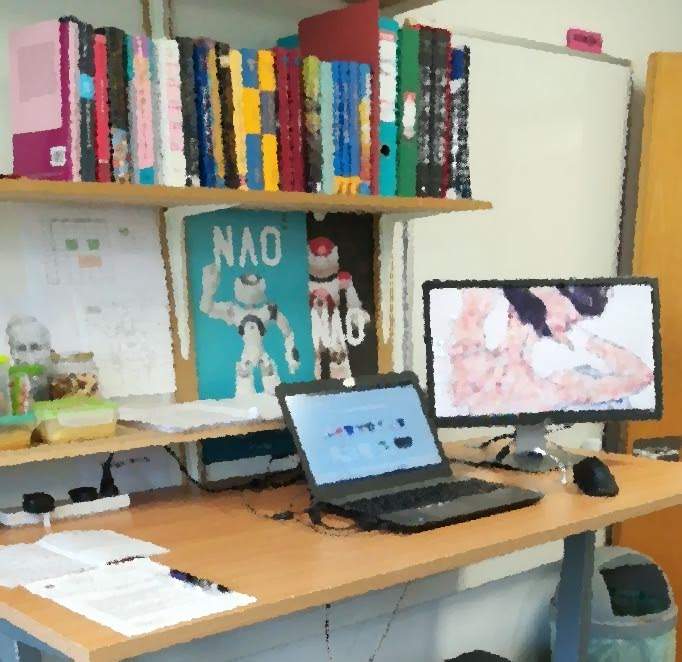
I’m working on a desk with adjustable height. Every hour, I’m either standing or sitting and constantly try to move my position. I have a collection of books for references and keep my desk free from anything but the laptop and one or two documents to take notes on. Next to my desk is a whiteboard to sketch out ideas. I’m working on multiple monitors. My second workstation includes the two robots that I work with and an additional setup of cameras and monitors:

What platform/tools do you use for your professional life?
ResearchGate, Slack, Reddit, Overleaf, Github, stackoverflow etc.
For computing, I have started to mostly rely on cloud computing. I can highly recommend Google Colab for that matter.
What secondary software and apps do you use daily?
My university largely runs on GSuite, therefore I’m using Gmail, Google Calendar and most Google apps on a daily basis.
How do you stay up to date on News and resources?
reddit.com/r/MachineLearning, NPR (especially the politics podcast and UpFirst), reddit.com/r/Science
What have been the most influential podcasts, or other resources?
By no means exhaustive:
- Cognitive Science: Invisibilia (Podcast), Goedel Escher Bach (Douglas R. Hofstadter)
- Reasoning: LessWrong.com
- Linguistics: Philosophische Untersuchungen (Ludwig Wittgenstein)
- Creativity: RobotComix (Tony Veale)
- Machine Learning: https://towardsdatascience.com/
- Embodiment: Radical Embodied Cognitive Science (Anthony Chemero)
- Natural Language Processing: https://minimaxir.com/ (Max Woolf)
- Contemporary Culture: ContraPoints
What tools do you use in your personal life? Cook? Self Care? Hobbies?
The greatest help apart from friends and family during stressful times is sports. If you are able to exercise your body on a regular basis, do so. It helps to think, it helps to breath and to focus – literally. I’m trying not to work and eat/relax at the same place. And I cook all my own meals. Teaching actually helps me to realize that I can have an immediate impact on the world in an otherwise long-term reward environment.
Advice for other scientists who want to get started or are just starting out?
- There are a ton of free software goodies for students. Literally dozens of free offers can be found here: https://education.github.com/pack I always recommend my first year students to check it out. Whether it is free AWS credit, private Github repos, free premium APIs, free domain names etc.
- No backup no mercy. Always secure your data. Consider working on a cloud service entirely.
- Check if you need ethics approval by your university for anything. Do it. Trust me.
Thank you very much for your time, Philipp. Where can we go to learn more?
- Website: www.phil-wicke.com
- LinkedIn: www.linkedin.com/in/phil-wicke
- ResearchGate: https://www.researchgate.net/profile/Philipp_Wicke
- Publications: GoogleScholar
- Blog Posts: https://medium.com/@philipp.wicke_10388
- Github: https://github.com/PhilWicke

